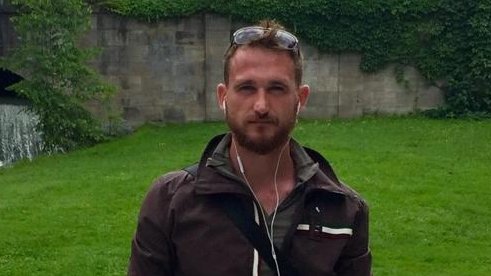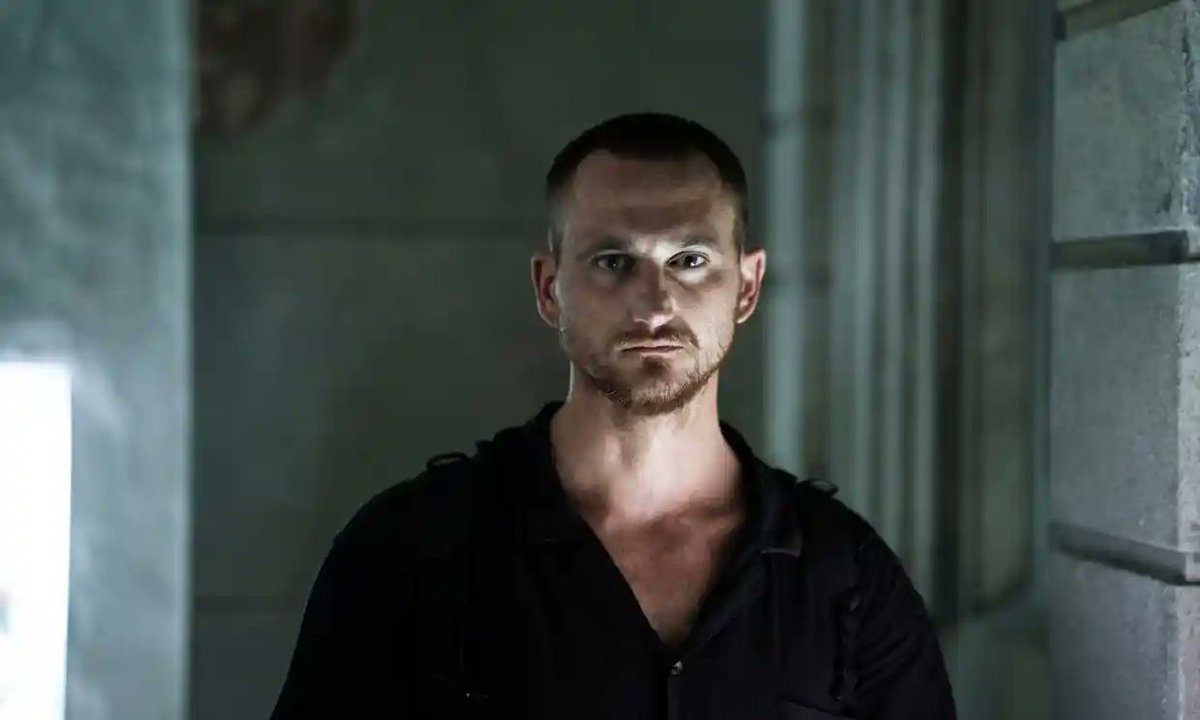
1/ Another account of a Russian soldier's involvement in the war in Ukraine has emerged via the independent Russian media outlet Important Stories. Daniil Frolkin, a 21-year-old contract soldier, has spoken candidly of his involvement in war crimes and looting. A 🧵 follows. 

2/ Frolkin's story has been publicised in the media but his full account, recorded in a YouTube video, is worth reviewing in more detail. It provides an interesting contrast to the longer story of the former paratrooper Pavel Filatyev (see link below).
https://twitter.com/ChrisO_wiki/status/1560022545356791810
3/ Daniil Frolkin was a member of the 64th Separate Guards Motor Rifle Brigade, which was part of the Russian force that invaded northern Ukraine on 24 February 2022. His battalion occupied the villages of Makariv and Andriivka, west of Kyiv, in February-March 2022. 

4/ Frolkin's story only came to light by coincidence: he was one of several soldiers who took photos of themselves on a stolen mobile phone they left behind in Andriivka. It was later recovered by its Ukrainian owners. From the photos, Important Stories was able to identify him.
5/ Important Stories (iStories) contacted Frolkin via VK, the Russian equivalent of Facebook, and he agreed to talk to them. His account paints a vivid picture of the Russian occupation regime in the Kyiv region. He was a contract soldier who joined the Russian army in 2020.
6/ Frolkin says that his pre-war training was virtually non-existent, and was effectively faked by his commanders to meet their reporting requirements. "While I served in this brigade under my contract, we just submitted photo reports."
7/ "We would arrive at a firing range and stand with a rifle pointed at the target. And as soon you’re photographed, you are free to go. But we wanted to [practice how to] shoot anyway." 
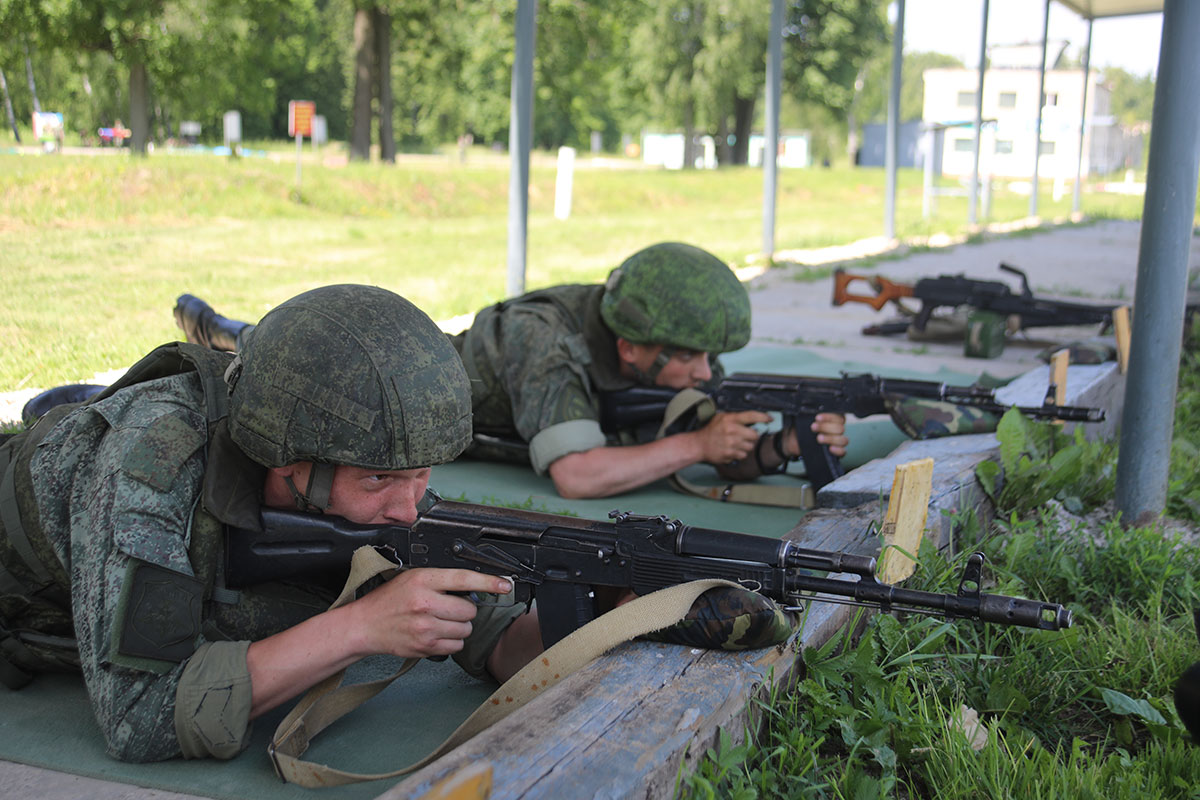
8/ "So, I went with the 9th company when they arranged ammunition expenditure, as they had too much ammo counted on them. So, we would just go and shoot. You look at the field and shoot at it to expend more ammo."
9/ (Note that the same system of fraudulent photo reporting is mentioned in Pavel Filatyev's account, suggesting that it's in widespread use across the Russian army, even in elite units.)
https://twitter.com/ChrisO_wiki/status/1560023915040317444
10/ "We arrived, we just lived at first in the base area, everything, then we were scattered around the areas of concentration. My platoon had the duty of feeding the battalion."
11/ According to another soldier with the unit, they were given minimal notice of the invasion, only learning about it just before it was launched in the early hours of 24 February.
12/ "When we were in the base area in Belarus, after the Russian Army Day celebration lunch on 23 February, they formed up the unit and ordered [us] to prepare the vehicles to set out to Ukraine. I myself found it out only 2 hours before the departure."
13/ "They told us we were going there for 3 days to intimidate [Ukraine]; a special operation had begun, Luhansk and Donetsk were to be recognized as People’s Republics and quickly accede to the Russian Federation, and that’s it, then we leave."
14/ The soldiers were given supplies only for the envisaged three-day campaign. When they found it was going to take much longer, they had to improvise – which meant looting from the Ukrainian villages they were occupying. 
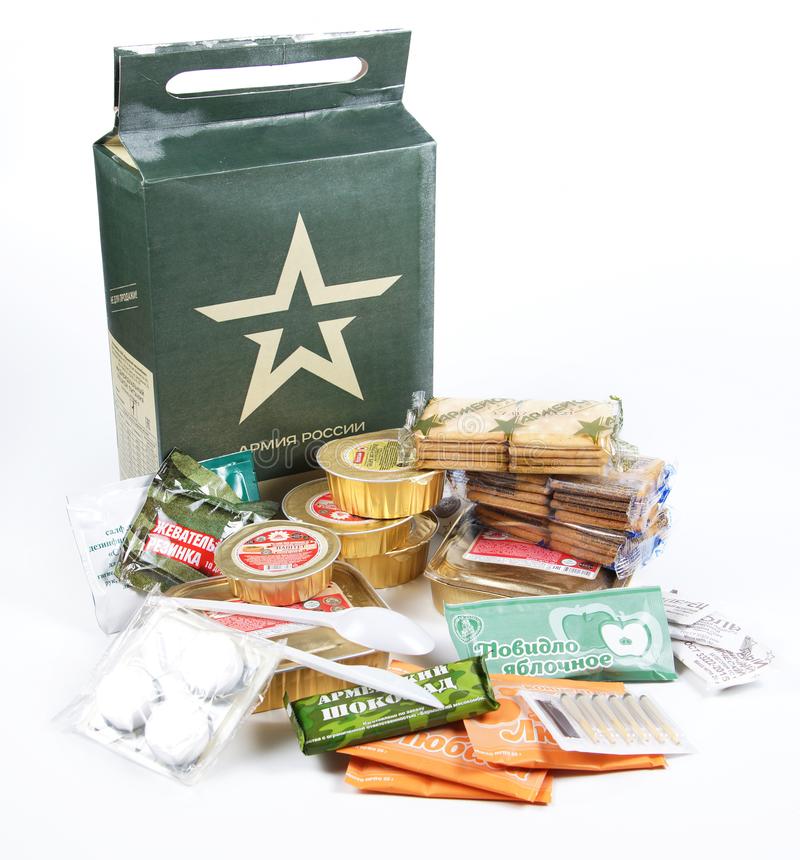
15/ "There was no opportunity to wash. Basically, I had to change clothes, look for something more or less in size, suitable for the military." The soldiers went into civilian homes and took clothes from the residents. Frolkin left his name-tagged uniform behind in one house.
16/ They were also given very little information about where they were going. "There were just no specifics. They were constantly feeding us 'breakfasts'. We were told the point which we had to reach."
17/ "We reached that point. But when it was time to leave, they said another point, then another, and so on. That was the most frustrating part."
18/ Frolkin's unit eventually reached Makariv, about 35 km west of Kyiv's city limits. They stayed in the Kyiv region from 24 February to 1 April. The Russians started taking heavy losses almost immediately after entering Ukraine. 
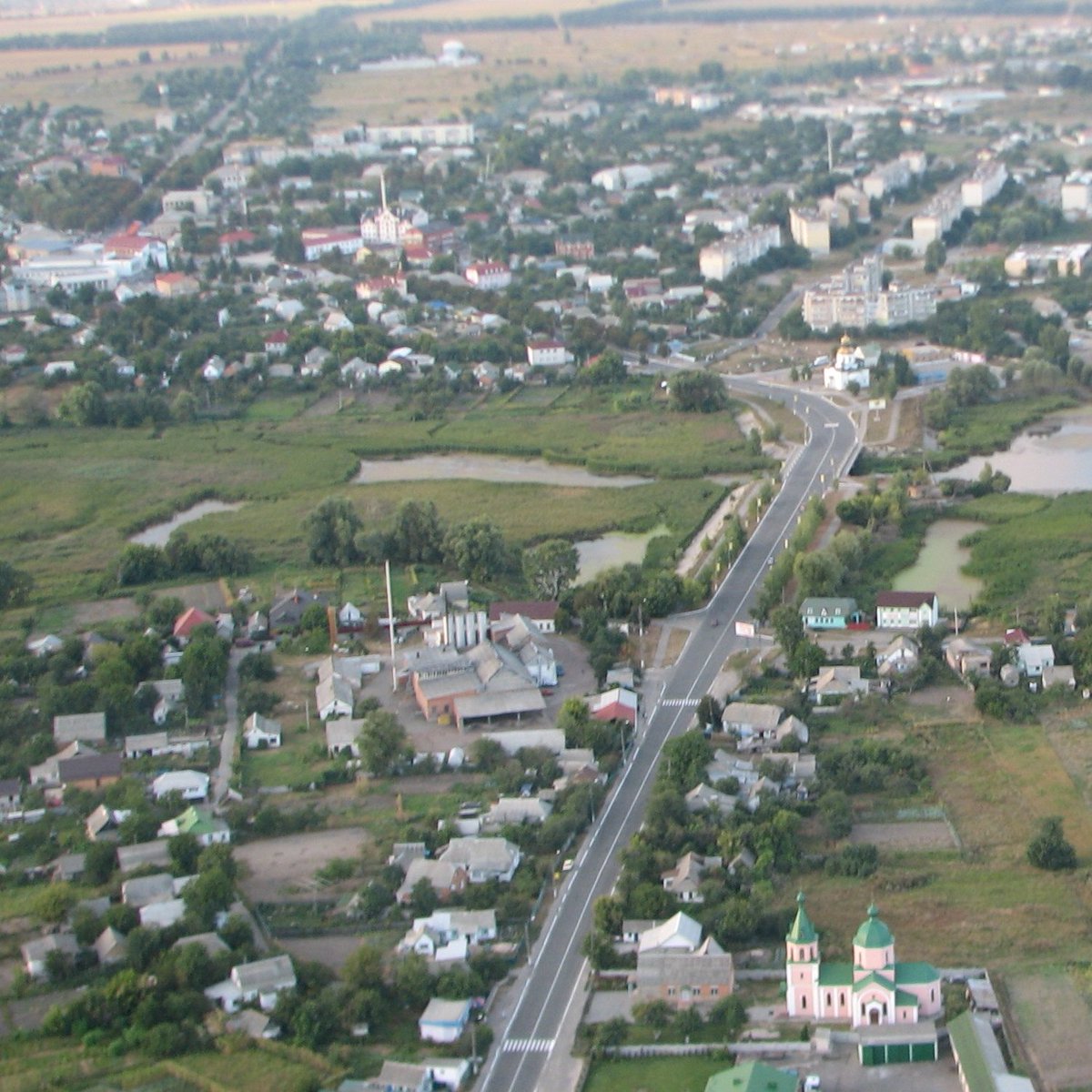
19/ "On 1 March we were already in Makariv. So, we arrived at night and the brigade commander was forming up columns on the road. We started to dig trenches. So, I jumped out of the armoured vehicle, took a spade and started digging."
20/ "I think I had reached the depth of exactly 2 [spade] blades, when we heard 2 distant slaps. We had no clue what that was, and [then] those shells started falling on us. We ran and saw a guy without a leg, so we applied a tourniquet, and saw a second guy without a leg."
21/ "He died while we were carrying him. So, you run in total panic. Where to run? There’s nowhere to run. That was the first time that I felt that one can die very easily in that land."
22/ The following day, Frolkin and his colleagues found a soldier walking by himself "in black shabby and greasy clothes", armed with an assault rifle. He turned out to be a tank commander who was one of a handful of survivors of his unit.
23/ "1½ tanks were left out of 12. The rest had burned or broken down. So, they were defeated utterly. He said he was burning inside the tank. Almost the entire crew was dead. He was lucky the hatch was open. He was blown out through it, so he survived." 
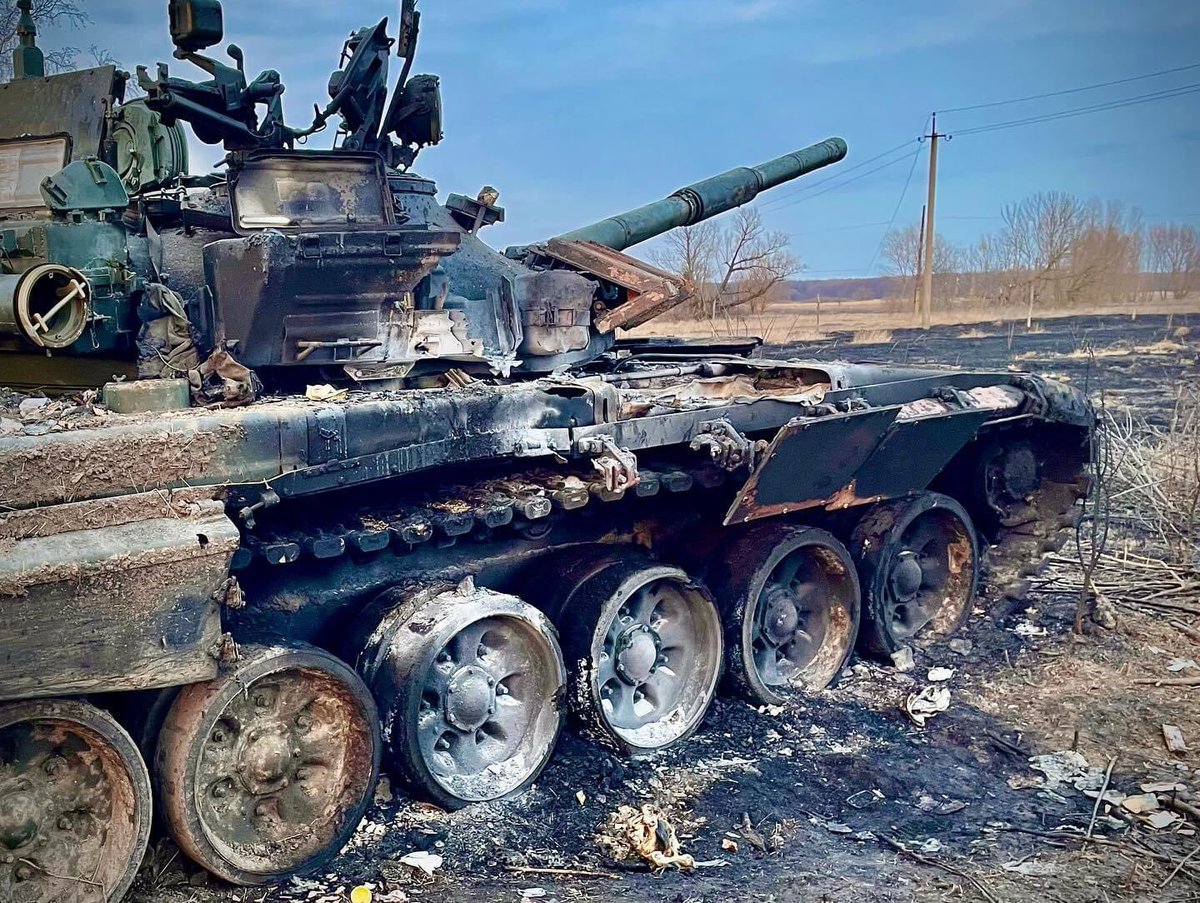
24/ According to a combat diary later found in Andriivka, "The company was in the village of Andriivka, vehicles and infantry defended themselves in the trenches and in the yards of certain houses, after which mortar fire was carried out." 
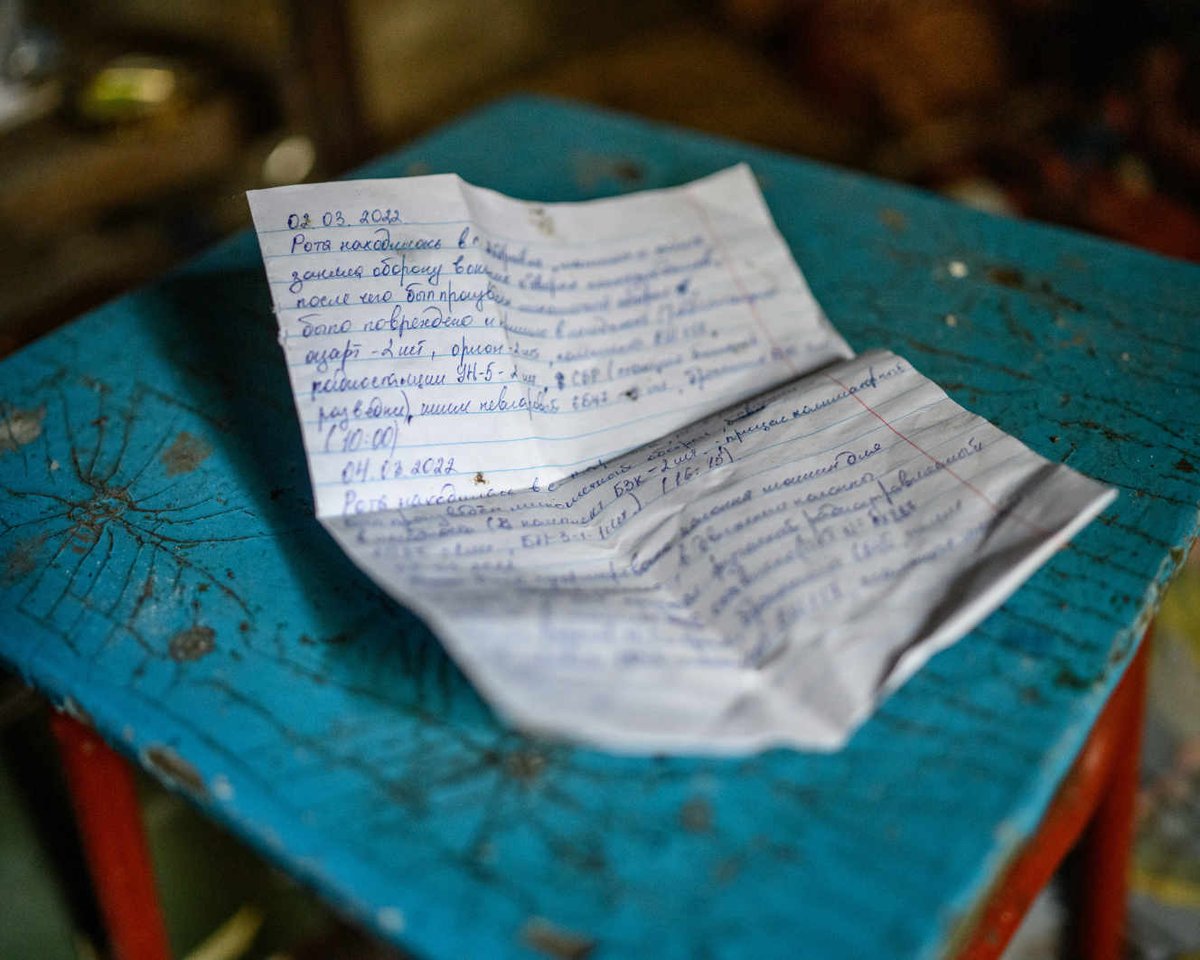
25/ Frolkin never saw a Ukrainian soldier. Instead, he says, the Russians fought mainly with artillery. "As [the Russian artillery] start shelling a village, no one knows how many civilians are there or where they are. They just wouldn’t tell us any news.
26/ "They only tell us about our direction, like: 'We’re pushing them, we’re so cool!' And it’s not clear who we’re fighting against. And they wouldn’t tell us anything about other [fronts], or about civilian casualties."
27/ Probably due to the mounting casualties they were sustaining, Frolkin's unit was moved out of Makariv. "We were supposed to stay in Makariv, but we were taken to a recovery detachment, so we moved to Andriivka." 
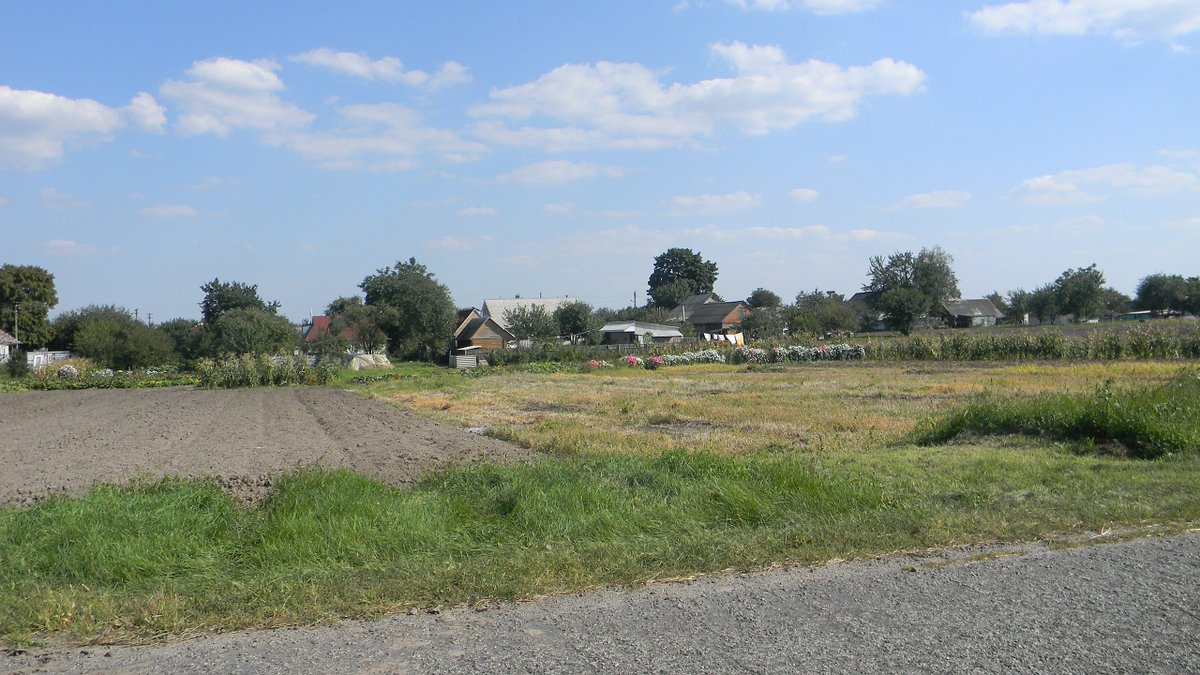
28/ While in the village, they took over a Ukrainian family's house. The owner says that he, his wife and his 95-year-old father-in-law were ordered to leave the house on 13 March. It's not clear whether Frolkin was involved in the eviction.
29/ Frolkin says his unit engaged in looting, some of it due to food supplies being interrupted: "We went to basements where we saw that people don’t live in the house. We enter a basement, and there is potato, pickles, stuff like that. So, we took it and cooked for ourselves."
30/ The looting was widespread and systematic. "Our logistics officer used to steal fridges from shops and stuff like that. Also, they found warehouses with sneakers and various clothing, which was also all taken away. They carried it in trucks."
31/ "I saw 2 such trucks arriving in Belarus. Huge trucks arrived, were loaded, and carried it away. Before that, they were like cockroaches, carrying these bags, these cloth bundles ... You just look at a guy and he is so little and he pulls a bicycle, carrying these bags.
32/ "I don’t know how much of it they wanted to take. The cars and everything that was looted... Why would you need this car? You have neither licence nor title to it. And driving it is risky, too, because there’s constant mortar shelling."
33/ The looting was not only done by low-ranking soldiers. iStories reports that according to another source, deputy commander for logistics Colonel Vyacheslav Klobukov stole a dinnerware set from a home in Andriivka "so that the commanders could eat from nice dishes." 
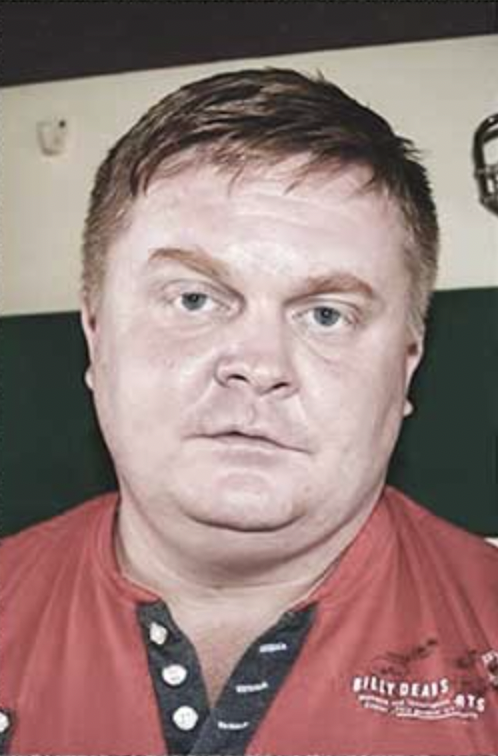
34/ One soldier serving with the brigade says that on one occasion "an entire KUNG [closed-body van on a truck chassis] was stuffed with refrigerators, laptops and even tables and chairs stolen from locals." 
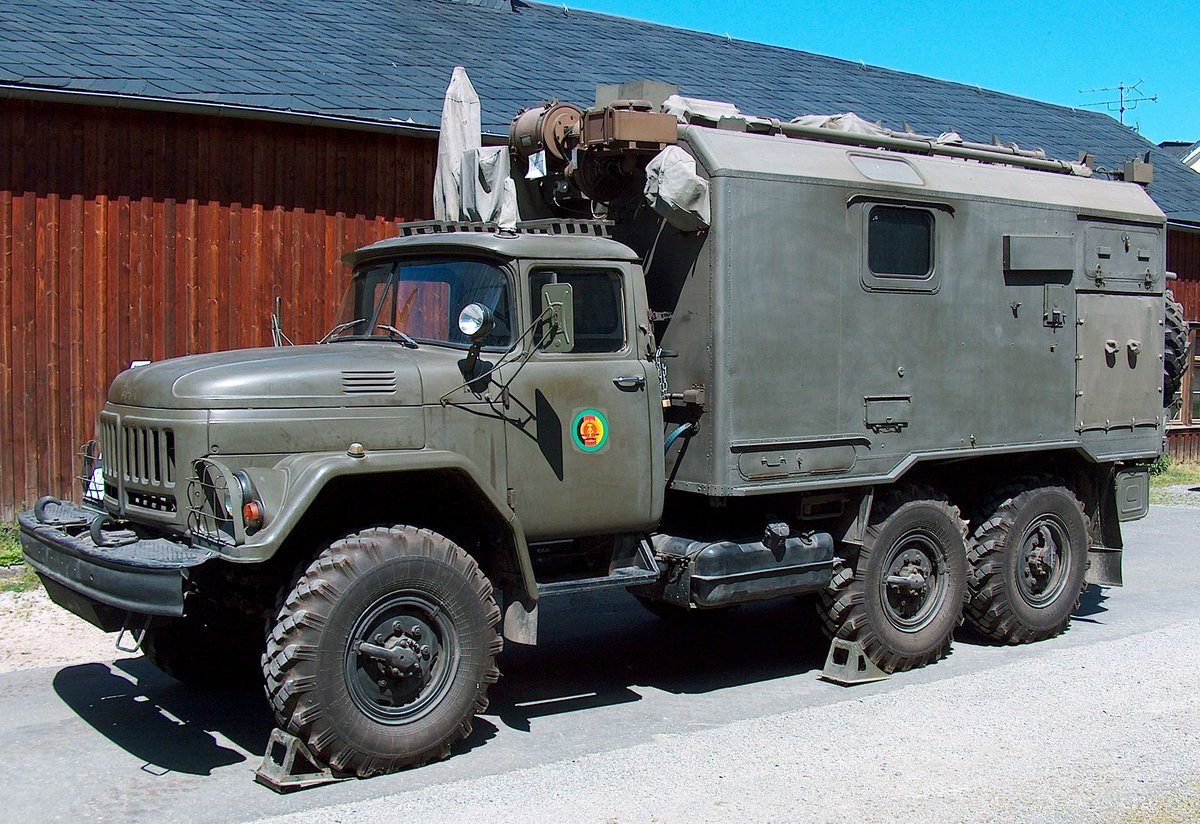
35/ The loot was likely shipped back to Russia via Belarus. In some cases, fridges looted in Ukraine seem to have been given to the widows of dead Russian soldiers, likely given by their husbands' units as a form of compensation.
https://twitter.com/proudukraine/status/1548974453534691328
36/ The soldiers' already poor discipline got worse as they realised they would be staying in Andriivka for some time. Casualties mounted, with their commanders staying in safe bunkers while the ordinary soldiers were attrited by Ukrainian attacks. They began to drink heavily.
37/ The drunken soldiers became a menace to those around them, including the unfortunate villagers, but also became vulnerable to Ukrainian partisans. One soldier was so drunk his colleagues could not wake him up. The next morning he was found shot dead.
38/ "The street where he was found was not controlled by either our fighters or anyone. And we could see Ukrainian positions in the neighboring village. So, they could cross that field to that street just as easily."
39/ In the next instalment, I'll cover how Frolkin's unit dealt brutally with civilians in Andriivka, and how they revolted en masse when they discovered they were being redeployed to the north-eastern and southern fronts in Ukraine. /end
(P.S. I'll be adding links to all my sources in the next instalment, which should be coming tomorrow.)
Part 2 is here:
https://twitter.com/ChrisO_wiki/status/1563038520821702656
• • •
Missing some Tweet in this thread? You can try to
force a refresh



